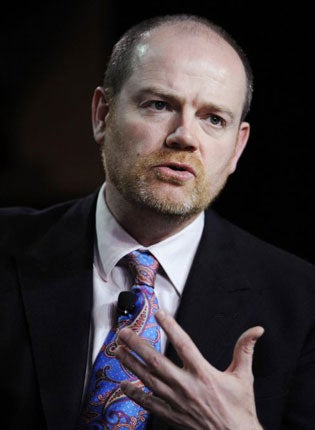MPs and religious leaders press BBC to screen Gaza aid appeal
Politicians from all sides condemn corporation for blocking charity broadcast

Your support helps us to tell the story
From reproductive rights to climate change to Big Tech, The Independent is on the ground when the story is developing. Whether it's investigating the financials of Elon Musk's pro-Trump PAC or producing our latest documentary, 'The A Word', which shines a light on the American women fighting for reproductive rights, we know how important it is to parse out the facts from the messaging.
At such a critical moment in US history, we need reporters on the ground. Your donation allows us to keep sending journalists to speak to both sides of the story.
The Independent is trusted by Americans across the entire political spectrum. And unlike many other quality news outlets, we choose not to lock Americans out of our reporting and analysis with paywalls. We believe quality journalism should be available to everyone, paid for by those who can afford it.
Your support makes all the difference.Fifty-one MPs will today urge the BBC to back down over its refusal to screen an emergency appeal for humanitarian aid to Gaza. Richard Burden, the Labour MP for Birmingham Northfield, will table an Early Day Motion stating that the House of Commons is "astonished" by the broadcaster's decision not to show the appeal by the Disasters Emergency Committee because it would "threaten the impartiality of its news reporting".
Yesterday, members of the Stop the War protest group occupied the BBC's Glasgow offices, saying they would stay in the building until the corporation agreed to air the DEC's fundraising advert for Palestinians in the Gaza Strip.
The occupation followed criticism from MPs and religious leaders, including the Archbishop of Canterbury, Dr Rowan Williams, who said: "My feeling is that the BBC should broadcast an appeal," .
The DEC, formed in 1963 to raise and distribute funds for disaster relief, comprises 13 charities including the British Red Cross, Save the Children and Oxfam. Its appeals raise millions of pounds for food, medicines and shelter, in this case for Palestinians left homeless and hungry by Israel's 22-day bombardment of the territory. ITV, Channel 4 and Five have all agreed to show the broadcast, while Sky has yet to decide.
Last night, the Justice Minister Shahid Malik said he had yet to meet anyone who supported the BBC's position, while the Health Minister Ben Bradshaw dismissed the impartiality argument as "completely feeble".
Mr Burden said the BBC's reasoning was "both unconvincing and incoherent". In a letter asking for further explanation from the BBC director-general Mark Thompson, Mr Burden said: "This is not about taking sides in the conflict. It is about providing urgent help to people in desperate need.
"The important thing is to get aid in to Gaza. This is recognised by almost everyone, including the Government. The BBC appears to be the only one who has a problem seeing this."
A spokesman for Stop the War said about 100 people had occupied the foyer of BBC Scotland in Glasgow, while police put the number of protesters at about 50 and said there had been no arrests. "We picketed the BBC last week but this makes our point more forcibly," said John Hilley, of the Glasgow Palestine Human Rights Campaign.
The protest followed another in central London on Saturday, when thousands of demonstrators converged on Broadcasting House, the BBC's headquarters in Portland Place. Some hurled shoes at the building, an action which is considered an insult in many Arab societies.
The BBC said its position was unchanged, despite it receiving 11,000 complaints. Mr Thompson explained the reason for his decision on the BBC website. "Inevitably, an appeal would use pictures which are the same or similar to those we would be using in our news programmes but would do so with the objective of encouraging public donations," he said. "The danger ... is that this could be interpreted as taking a political stance on an ongoing story. When we've turned down DEC appeals in the past on impartiality grounds, it has been because of this risk of giving ... the impression that the BBC was taking sides in an ongoing conflict."
Join our commenting forum
Join thought-provoking conversations, follow other Independent readers and see their replies
Comments